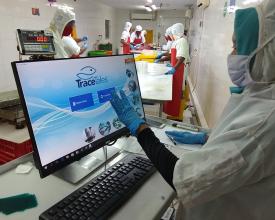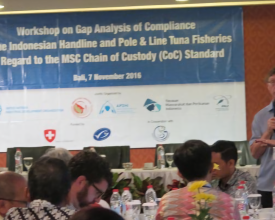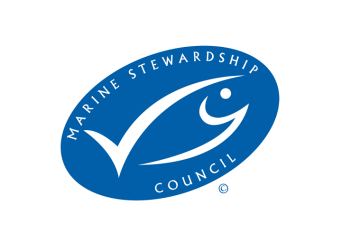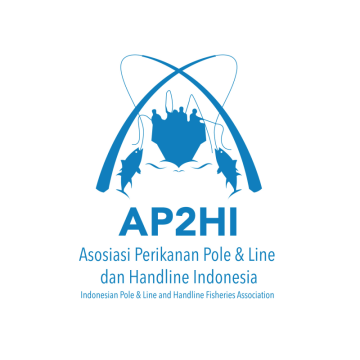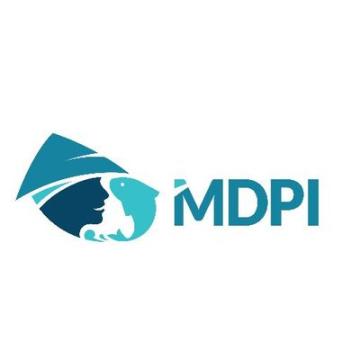
Supporting supply chain traceability in small-scale tuna fisheries
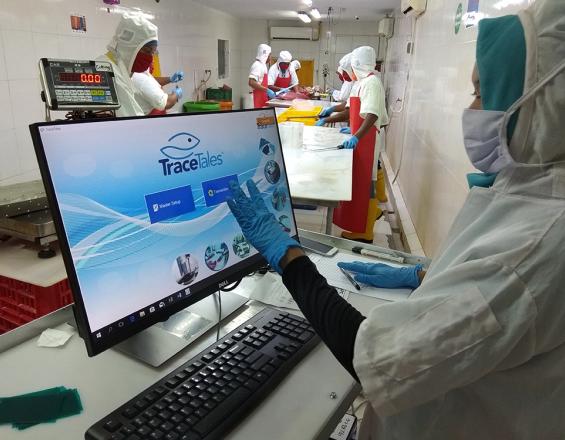
Within this project, multiple supply chains engaged in the Handline and Pole and Line fishery in Indonesia were categorized into a set of generic supply chain types. This allowed us to audit a wide set of supply chain types and create a generic improvement approach for each type. We shared improvement approaches with an entire group of industries engaged in the industry association AP2HI, at present over 20 companies and allow them to independently work towards the Marine Stewardship Council (MSC) Chain of Custody (CoC) Standard as well as increasing international traceability requirements.
Context
Challenges addressed
The main challenge this project addressed was CoC compliance within disaggregated supply chains of small-scale fisheries. These fisheries are often located in remote areas, with challenging transport connections, middlemen potentially affecting product flow depending on season and price and with low volumes coming from individual landings causing product to be aggregated for efficiency.
Having CoC can address challenges in processing inefficiencies, support improved quality measures, adherence to national and international regulation and at its core aims to eradicate Illegal, Unregulated and Unreported (IUU) products entering international supply chains. The fraud associated with IUU fishing generates the possibility of social and economic undercutting of responsible operators.
Having CoC and traceability gives credibility to compliant industry stakeholders. Addressing these challenges will benefit the industry in processing efficiency, product quality and reputation.
Location
Process
Summary of the process
The coordination allowed various themes related to the broader topic of traceability to work together. The coordination also allowed the initial approach of the project, namely the support for Chain of Custody achievement in Indonesian supply chains, to be enriched by including aspects on international regulations, internationally recognized Key Data Elements (KDEs) for traceability and regional initiatives and technology being utilized to support traceability as a whole.
Building Blocks
MSC Chain of Custody Standard
The MSC Chain of Custody ensures products from MSC certified fisheries are traceable. It can be used as a mock audit to create improvement plans or as a framework to improve traceability.
By analysing supply chain characteristics, we categorized companies and their supply chains into one of six supply chain categories/types. This allowed us to make a generic improvement recommendation for each supply chain type, meeting the needs of 18 companies rather than only the nine companies that were mock-audited under the scope of this project.
The MDPI-AP2HI collaboration facilitated connections with industry and encouraged their involvement in the project. The final report was written in a format that allows it to be shared worldwide to benefit other industries. Though the solutions may not directly translate, most internationally-focused supply chains can benefit from it and be able to find simple solutions to improve the CoC/traceability of their supply chains, in turn facilitating their compliance with certifications but also general compliance with international import and export regulations. The report references Key Data Elements that are becoming internationally recognized as the minimum requirements for internationally-recognised traceability.
Enabling factors
The collaboration in this project with AP2HI and the progress made in recent years towards MSC Fisheries certification, was important for the project.
Chain of Custody, though a useful approach towards traceability and transparency is not required and lends little benefit to companies if they are not handling certified product, so having the parallel work ongoing was important for this projects success.
Lesson learned
Data confidentiality is an important factor to consider when dealing with multiple companies. Before engaging with multiple companies together, you should focus on ensuring that they feel secure and trust that their internal information will not be shared, hence these types of projects should have strong data security approaches and prioritize putting non-disclosure agreements in place with partner companies from the outset. This creates a better working environment with less hesitation.
Follow-up is necessary, though one may presume that implementation of improvement within the supply chains to become more compliant, especially after one-on-one advice and training has been conducted, would be of self-interest to the companies but this is not always the case. Generally companies work better under pressure and with constant reminding.
Partnerships
The project fostered collaboration amongst organisations to work together on a topic of current global interest, Chain of Custody and Traceability.
The main organisations working on this project were MDPI, an Indonesian implementation NGO, AP2HI, an industry association bringing together progressive handline and pole and line tuna companies and the United Nations Industrial Development Organisation (UNIDO) Smart-Fish Indonesia.
All organisations have a strong interest in ensuring industry progress towards and understanding of traceability, and require strong industry relationships to ensure successful project outcomes. This collaborative project allowed organisations with different backgrounds, interests, expertise and objectives to coordinate and work towards achieving their interests within this field.
This approach allowed us to ensure close collaboration with industry, to get their permission to audit their supply chains and to work directly with them on improvement. The collaboration ensured additional funds were available to be leveraged to broaden the focus of the project from not only Chain of Custody but also on the more general concept of traceability, relevant to increasing market and regulatory demands.
Enabling factors
New import regulations are coming online in the US market in 2018 and suggestions have been made that the EU will update their regulations within 2018-2019. This made the industry aware that changes and improvements within supply chains are necessary to meet market demands. International projects such as the Smart-Fish Indonesia program and the USAID Oceans project are focusing on the topic of data, traceability and transparency making collaboration easier at this time.
Lesson learned
Coordination between various organizations, as was the case in this project, takes time and energy which should be factored into work-planning and budgeting from the onset. This should be taken into account for the implementation phase and for the contracting and reporting phases of a project.
Managing other organisations, in the form of sub-contracts in a wider project, requires very detailed work-planning and deliverable expectation discussions. The outcome of the project relies on good communications about the deliverables and expectations.
All organisations in a larger collaborative effort can work on their own objectives, but a combined vision and some combined objectives are useful to accelerate progress and add strength to the validity and need of the promoted topic. An agreed shared vision can reduce the potential for conflicting approaches being communicated to stakeholders and external partners of the project.
Impacts
This project generated a collaborative approach amongst the following organizations: MDPI, AP2HI, IPNLF, SMART-Fish Indonesia, USAID Oceans and Marine Change. MDPI were able to leverage this work to partner with USAID Oceans on their Catch Documentation and Traceability project. The work enabled AP2HI to forge stronger relationships with its member companies, as AP2HI were seen as facilitating activities that benefit member companies aiming towards MSC certification. This project generated a stronger relationship between MDPI, AP2HI and CoC Conformity Assessment Bodies (CABs).
This project ensured strong capacity building in the above mentioned organizations on the topics of traceability and MSC Chain of Custody. We all have a better understanding of the requirements of the Standard and are better placed to support industry and supply chains meet the requirements. Industry is more aware of simple solutions they can implement to be CoC compliant and to conduct traceability to meet international standards, at relatively low cost.
Through the collaboration, the conversation also focused on identifying what the internationally recognized Key Data Elements (KDEs) are and incorporating these into our everyday terminology and work practices. Industry are now informed and prepared to proceed to CoC certification.
Beneficiaries
The beneficiaries include 18 Indonesian handline and pole and line tuna companies and their supply chains which include approximately 3,000 fishermen across eastern Indonesia.
Sustainable Development Goals
Story
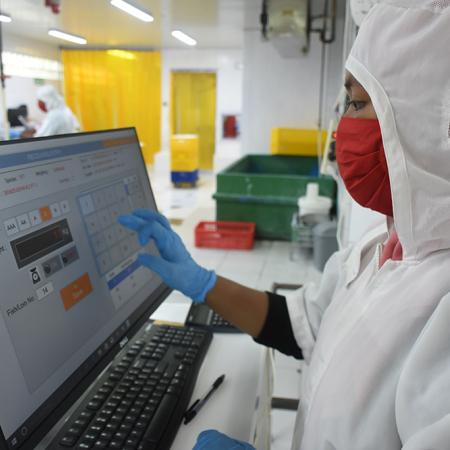
During the project, two of the companies were using an electronic traceability system in their processing plants and one supplier was using an application for recording information from fishermen. Both of these technologies were newly developed and implemented around the time of the project assessment and were still undergoing refinement based on user feedback.
As a result of the needs identified during this project and the advantages of using technology to meet these needs, both technologies were refined and improved under the USAID Oceans – MDPI partnership. The processor-based system is now called TraceTales, which was fully developed and sourced using Indonesian capacity and equipment. The supplier application is called Trafiz, which was also developed in Indonesia.
TraceTales is now installed in two companies, covering four processing facilities across North Sulawesi, North Maluku and Maluku. The Trafiz application is also being used by a number of suppliers across these locations, with the aim of promoting female suppliers to use the app. There are at least another three companies where the TraceTales system will be deployed within the coming year, enabling more companies to more easily meet the MSC Chain of Custody requirements.
